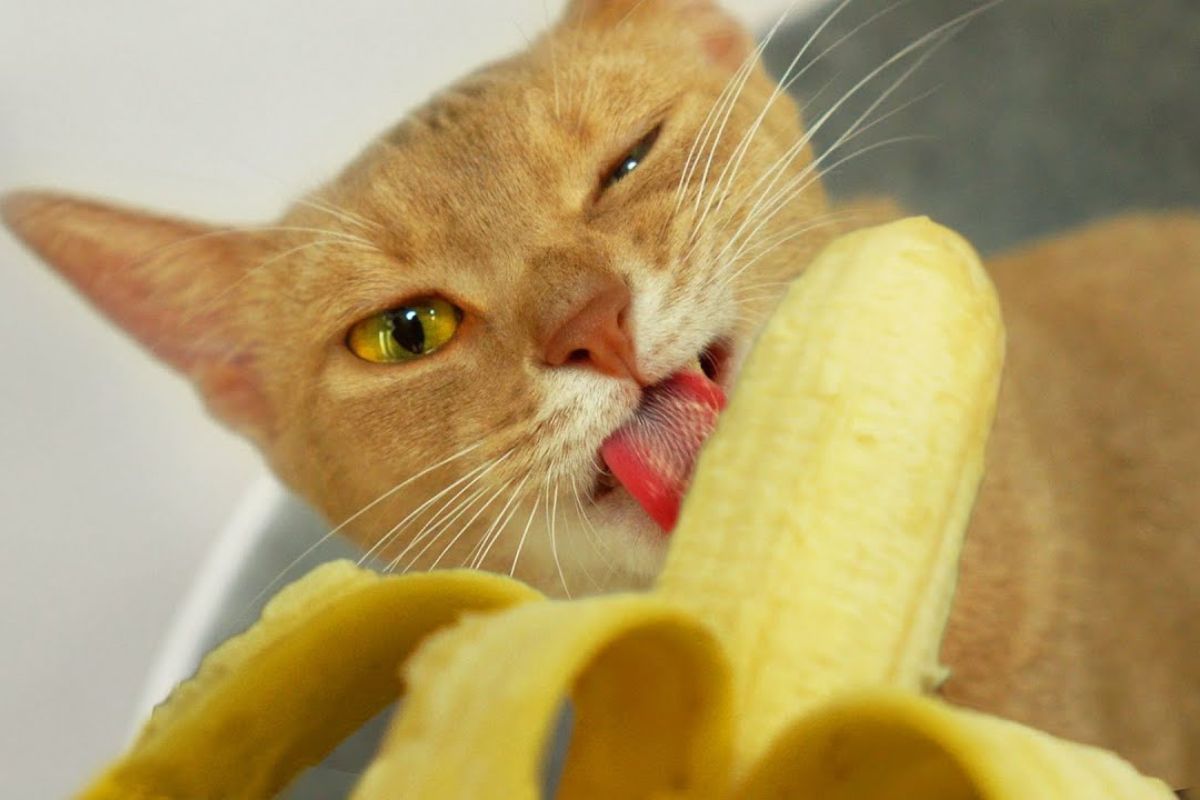Bananas are a common staple in many households, known for their nutritional benefits for humans, including being rich in potassium, fiber, and vitamins. Cat owners might wonder if sharing this seemingly healthy fruit with their feline friends is safe.
Nutritional Profile of Bananas
For humans, bananas are known for their health benefits, including high levels of potassium, vitamin C, vitamin B6, magnesium, fiber, and various antioxidants. These nutrients contribute to heart health, digestive well-being, and balanced energy levels in people.
The Feline Diet
Cats are obligate carnivores, which means their natural dietary needs are met by the consumption of meat. Their bodies are designed to derive nutrients from animal-based proteins and fats, not from carbohydrates found in fruits like bananas.
Are Bananas Safe for Cats?
Moderation is key when introducing any non-meat food to a cat’s diet, including bananas.
Potential Health Benefits
In small amounts, the vitamins and minerals in bananas can be ingested by cats without negative effects, and in some cases, they may provide a slight nutritional benefit. For example, potassium can aid in maintaining a healthy heart and kidneys.
Risks and Considerations
The primary concern with feeding bananas to cats is the high sugar content. Cats do not need added sugars in their diet, and excessive sugar can lead to weight gain and dental issues. Furthermore, the dense fiber content in bananas can be difficult for a cat’s digestive system to process, potentially causing gastrointestinal issues.
How Cats Might React to Bananas
Cats are individuals with unique tastes and preferences, and their reactions to bananas can range from curious interest to complete indifference.
Taste and Texture Preferences
Cats generally prefer the texture and flavors associated with meat. The soft texture and sweet taste of bananas do not usually align with these preferences, although there are always exceptions.
Sensory Responses
Bananas also contain compounds that might trigger a cat’s keen sense of smell and taste in unexpected ways. For some cats, the smell of a banana might be off-putting, while others may find it intriguing.
Serving Bananas to Cats
If an owner chooses to feed their cat bananas, it should be done with care and in moderation.
Portion Size
A small piece of banana, free of the peel, is more than enough for a cat to sample. The banana should be offered as a treat and not a regular part of the cat’s diet.
Frequency
Bananas should be considered an occasional treat rather than a dietary staple for cats. Introducing any new food should be done gradually to monitor for any adverse reactions.
When to Avoid Bananas
Certain circumstances warrant keeping bananas away from cats entirely.
Diabetes and Overweight Cats
Cats with diabetes or weight issues should avoid bananas due to their high sugar content. Added sugars can exacerbate these conditions and lead to further health complications.
Known Allergies or Digestive Issues
If a cat has a known allergy to bananas or pre-existing digestive problems, bananas should be avoided. The introduction of new foods can trigger allergic reactions or upset sensitive digestive tracts.
Healthier Alternatives
For those looking to provide their cats with treats that are healthier and more appropriate for their dietary needs, alternative options are available.
Commercial Cat Treats
There are numerous commercial cat treats formulated to complement a cat’s nutritional needs while still providing the excitement of a treat.
Homemade Meat Treats
Homemade treats made from plain cooked meats like chicken or turkey can be a better alternative that aligns with a cat’s carnivorous nature.
Expert Opinion
For precise advice on whether to include bananas or any other human food in a cat’s diet, consulting with a veterinarian is the best course of action. They can offer guidance based on the individual health needs and dietary requirements of the cat.
Conclusion
In summary, while bananas are not toxic to cats, they are not an ideal food for them. Cats are obligate carnivores and their main source of nutrition should come from high-quality, meat-based cat food. If a cat shows interest in bananas, a small piece can be offered occasionally as a treat. However, due to their high sugar content and potential for causing digestive upset, bananas are best offered sparingly and under the guidance of a vet, especially for cats with health issues like diabetes or obesity. Owners should be attentive to their cat’s individual needs and preferences and always prioritize their health and well-being when considering dietary choices.

